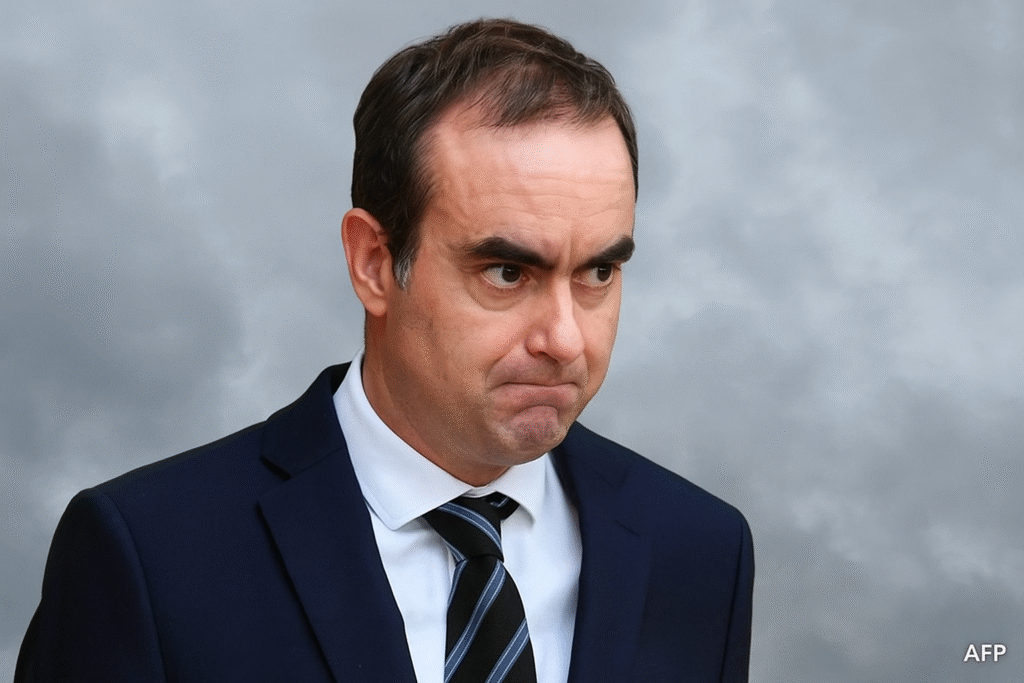By Harshit | October 6, 2025 | 11:00 AM CEST | Paris, France
PARIS, France — France’s Prime Minister Sébastien Lecornu resigned on Monday morning, less than 24 hours after unveiling his new cabinet. Lecornu cited the inability of political parties to reach the compromises necessary for effective governance as the primary reason for his departure.
“The conditions were not fulfilled for me to carry on as prime minister,” Lecornu said during a brief address outside the Hôtel de Matignon, the official residence of the prime minister, sharply criticizing partisan politics.
His resignation comes only 26 days after being appointed, following the collapse of François Bayrou’s government. Lecornu, a former armed forces minister and close ally of President Emmanuel Macron, became the fifth French prime minister in less than two years.
Political Fallout and Opposition
Lecornu’s cabinet faced immediate and fierce opposition in the National Assembly. Multiple parties threatened to vote it down, arguing that the lineup closely mirrored Bayrou’s previous government. Critics demanded significant reforms or early elections, expressing frustration with the lack of political compromise.
Marine Le Pen, leader of the far-right National Rally (RN), called for legislative elections and criticized Macron’s handling of the political crisis. “The joke’s gone on long enough. French people are fed up. Macron has put the country in an extremely difficult position,” she said.
Political analysts suggest Macron may now opt for new legislative elections, a move that could weaken his centrist coalition while strengthening the hard-right and other opposition forces. Appointing a Socialist prime minister remains a possibility, though experts warn that any left-wing government would also struggle to survive in a deeply divided parliament.
Lecornu’s Remarks on Partisan Politics
In his brief statement, Lecornu highlighted what he described as the “partisan appetites” of French political factions.
“I was ready for compromise, but all parties wanted the other party to adopt their programmes in their entirety,” he said. “It wouldn’t need much for this to work. Parties need to be more humble and cast some egos aside.”
His remarks underscore the ongoing challenges in French politics, where a fragmented National Assembly has made it increasingly difficult to pass legislation, implement reforms, or maintain government stability.
A Pattern of Political Instability
France has experienced significant political turbulence since July 2024, when Macron called snap parliamentary elections to secure a majority after his party’s weak performance in the European Parliament elections. The vote instead produced a hung parliament, leaving ideologically opposed factions unwilling to cooperate.
Michel Barnier was appointed prime minister in September 2024 but was ousted within three months. François Bayrou succeeded him, only to last nine months before parliament rejected his austerity budget, which aimed to cut government spending by €44bn ($51bn; £38bn).
Economic pressures compound the political challenges. France’s deficit reached 5.8% of GDP in 2024, and national debt climbed to 114% of GDP—the third-highest in the eurozone, after Greece and Italy—equivalent to nearly €50,000 per citizen.
Market Reaction and Future Implications
Following Lecornu’s resignation, French stock markets fell sharply, reflecting investor concerns over prolonged political uncertainty. The situation underscores the delicate balance Macron must navigate to stabilize governance while addressing fiscal and social challenges.
Macron now faces a critical choice: appoint a new prime minister capable of navigating the fragmented legislature, dissolve the National Assembly to trigger fresh elections, or explore alternative constitutional measures to stabilize the government.
Observers warn that the political landscape in France could shift significantly in the coming weeks, potentially providing hard-right and opposition parties with a historic opportunity to gain influence.
Looking Ahead
As France awaits Macron’s next move, the resignation of Sébastien Lecornu serves as a stark reminder of the fragility of governance in a divided parliament and the ongoing challenges facing one of Europe’s largest economies. Political analysts suggest the coming weeks will be crucial in determining whether France can achieve stability or faces further upheaval in its leadership.







